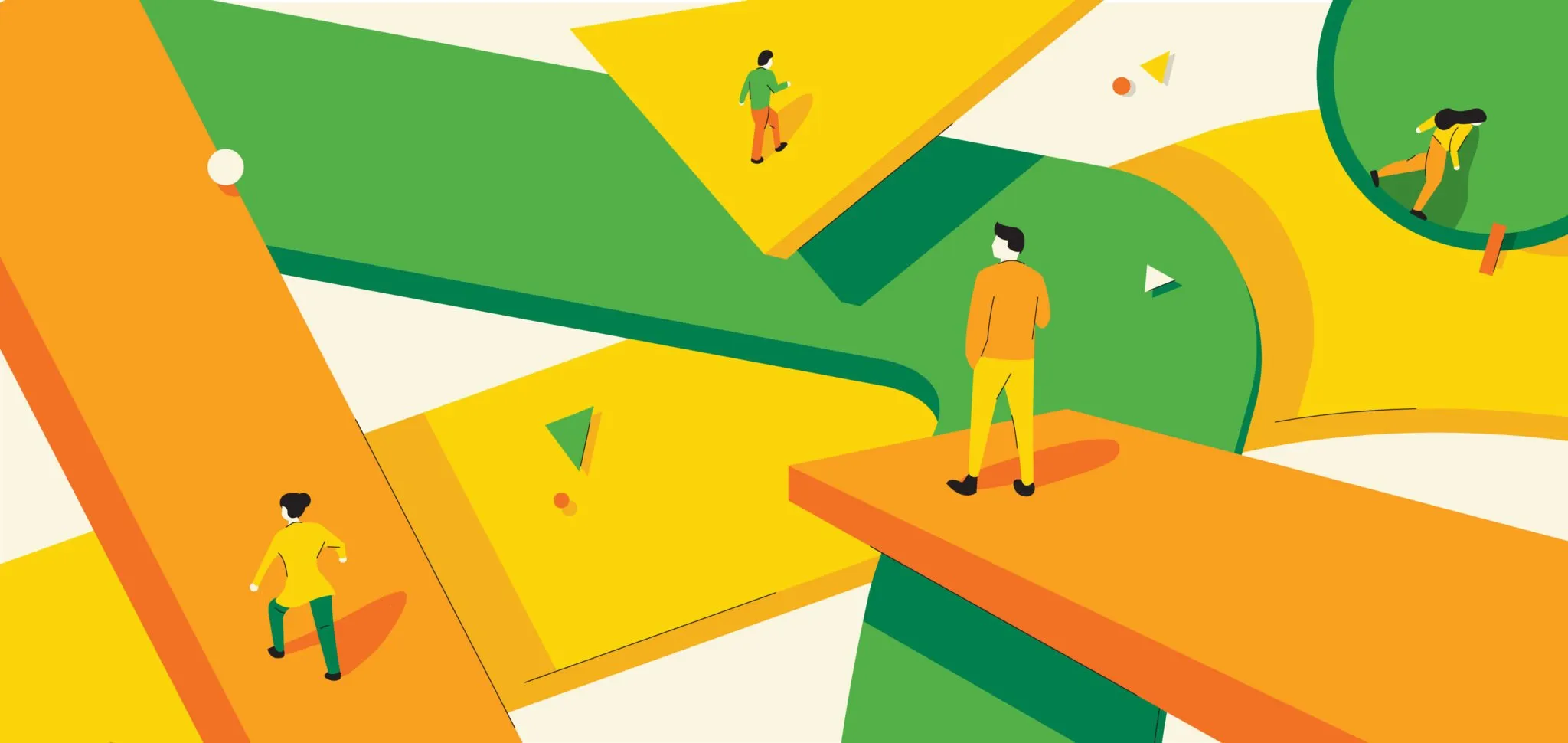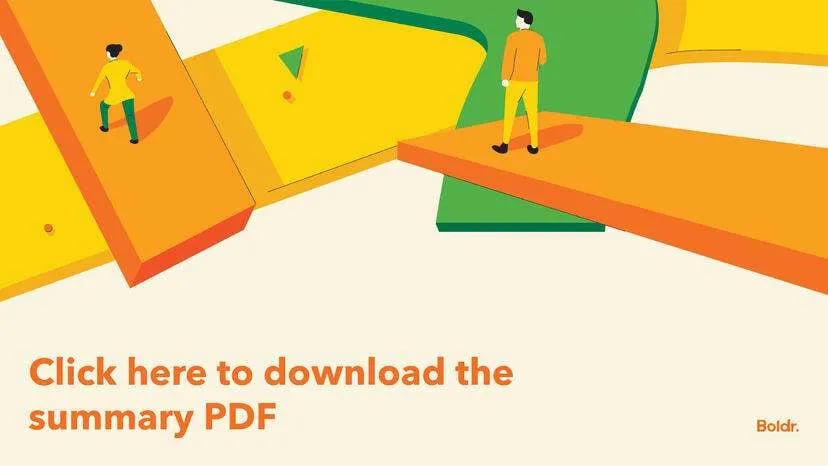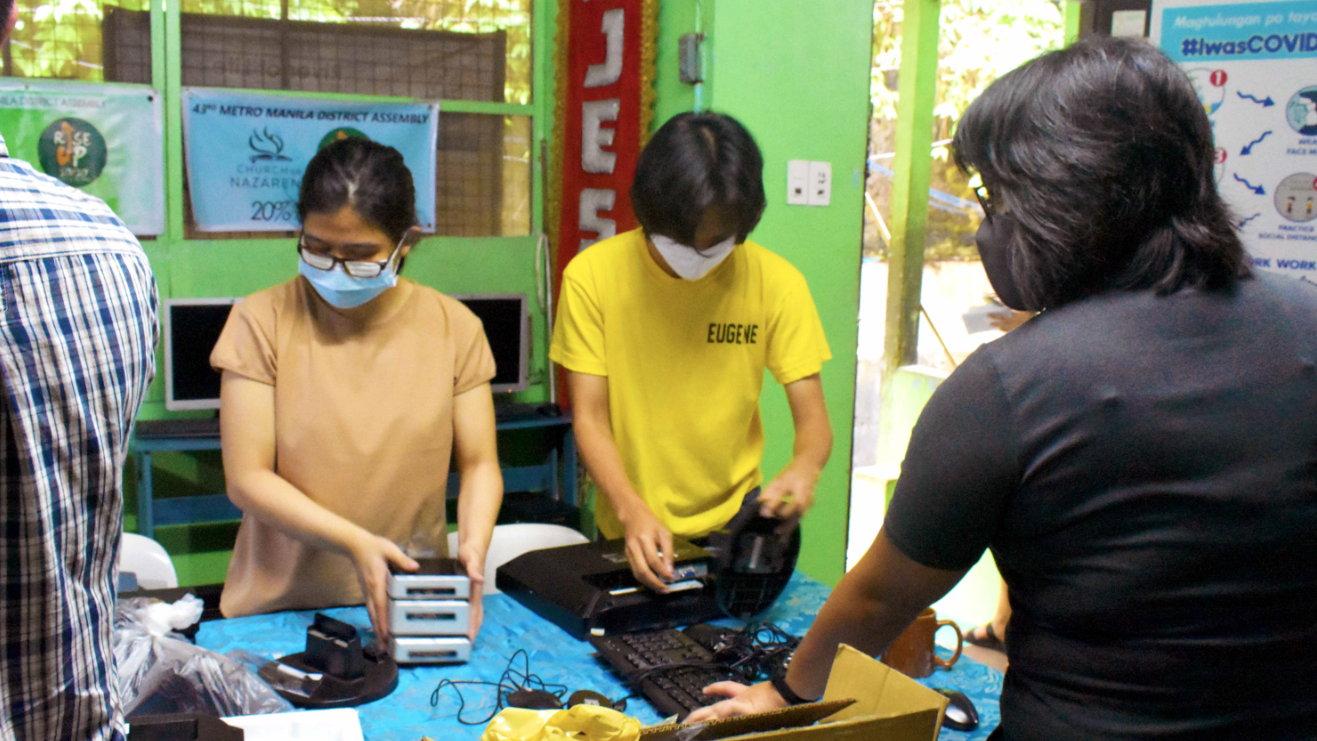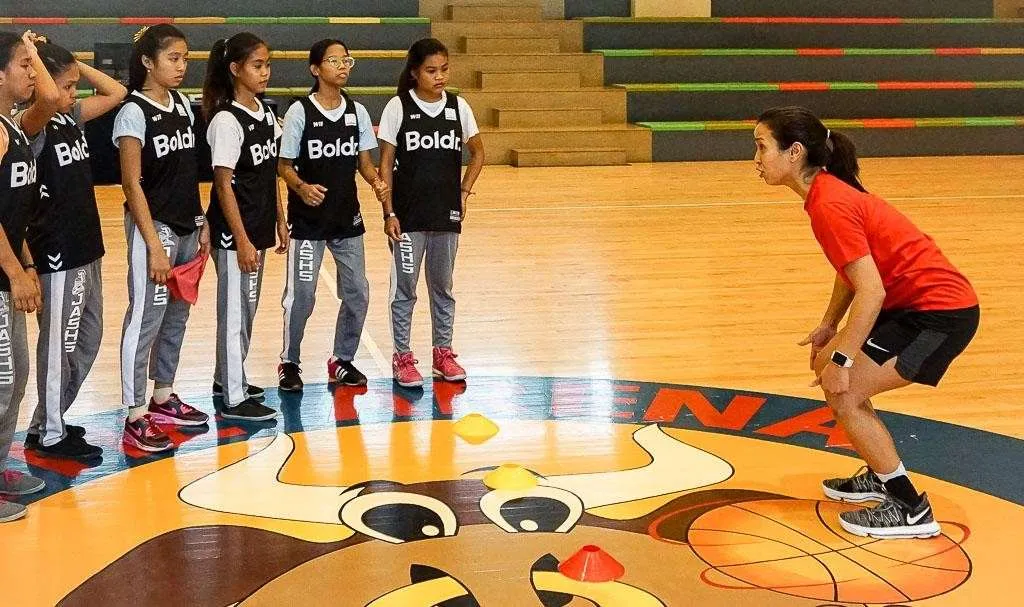On April 16th we hosted a discussion with some of the most thoughtful friends and partners from a diverse and esteemed set of organizations to talk through one topic: how were mission-driven organizations responding to and affected by COVID-19.
The guests who guided our discussion by sharing their thoughts and ideas were:
- David Mikhail, Communications Specialist, United Nations Capital Development Fund
- Manmeet Mehta, Director of Program Operations & Impact, Ashoka
- Bo Percival, Director of Technology and Innovation, Humanitarian Open StreetMap Team
- Greg Auberry, President and CEO, Consuelo Foundation
- Jessica Herrera, Youth Employment Solutions – Regional Officer, Plan International
The 60 minute discussion focused on answering three specific questions:
- When did each organization first respond to COVID-19?
- What actions are they in the midst of taking?
- How do they see their organizations re-emerging?
The PDF below provides an excellent summary of the guests key points for you to read through, while also providing links to abbreviated videos capturing the discussion on each specific question, thereby breaking apart the 60 minute session into smaller and more focused chapters.
You can access the PDF by clicking on the image below, and we encourage you to share it with anyone you feel may be interested in the discussion.
Excerpts of the content from the PDF are also outlined below.
How will global development organizations navigate this “new normal” and what will the landscape and future of development look like after COVID -19?
This fireside chat aims to explore and unpack questions around how mission-driven organizations have changed, responded, and adapted to the effects of COVID-19. Through the perspective shared by experts representing diverse contexts, the conversation is designed to create a greater and more holistic awareness and exchange of knowledge around navigating the world during and after COVID-19.
Related read: Boldranians Take on Covid-19
Acknowledging
Suneet: “Let’s talk about the first time people confronted it. Can you talk to us about the first time your organization started thinking about COVID-19?”
Manmeet: “It became clear quite rapidly that it was going to allow us a bird’s eye view into community response. The fellows became really powerful nodes around the world of lifting up the voices of communities and how communities are springing into action points in response to COVID-19.”
Manmeet shared how Ashoka responded to the initial impact of COVID-19 to their organization by serving as supplementary sources of reliable information for the communities they served. It was precisely the decentralized nature of Ashoka’s network of fellows that allowed them to connect with the communities while representing their needs especially where they are least noticed or recognized. Manmeet also talked about the amazing synergies that came about across their global networks to create support systems for Ashoka fellows in different regions.
Jessica: “Our security advisor is Italian so from the moment that this exploded in Italy he was very aware of trying to implement all these early measures. This also made us return to our strategy because PLAN’s mandate is to be with the most vulnerable and the core of our work is to be able to support girls and young women and to make sure they’re safe. This meant finding ways that we could still support them without putting them or exposing them to risk.”
Jessica explained the tension PLAN faced with regard to remaining true to their mandate which was to serve vulnerable communities, without being exposed to all the risks that came with working within a COVID-19 context. How COVID-19 has also pushed PLAN to revisit its strategy in both theory and practice was pivotal for the organization and highlighted the importance of building resiliency in every sector and sub-sector they support, whether it’s in health, youth employment, women empowerment, and so on.
David: “We’re talking not just about the immediate economic impact but really the potential to undercut the SDG agenda. If we don’t get the economic growth that we need, we’re looking at a future world where maybe a third of the Least Developed Countries’ (LDCs) population will live in extreme poverty. From an agenda that was focused on eliminating extreme poverty we now have to consider interventions to ensure that we don’t have in fact for the maintenance if not due to the uptick of it because of COVID-19.”
David framed UNCDF’s role and value proposition through the lens of the Sustainable Development Goals (SDGs), a broader global agenda, and the UN’s larger concerted efforts towards addressing COVID-19. David’s key point about LDCs being among the hardest hit and possibly the hardest to recover economically and therefore creating a new layer of complexity to eradicating poverty emphasized the importance of repurposing ongoing programs and interventions to ensure these countries can sustainably withstand and recover from both the health and economic impact of the pandemic.
Greg: “It was mainly just sharing information with people and making sure they felt comfortable doing their own personal risk analysis with travel and how comfortable they felt. It was important for us to reassure our partners because I think they’re very worried about their funding and their communities, so just taking a reassuring tone with them and really letting them know there’s flexibility in how we’re going to get to the end mark.”
Greg approached and acknowledged COVID-19 with a mindfulness of how their organization’s beneficiaries and partners would feel. Greg recognized the real anxiety around potentially losing the support these partners were receiving but tackled this from a values-centered approach and first created a sense of safety and reassurance regarding how the organization and the programs will navigate COVID-19 with much flexibility and understanding.
Bo: “I think the thing that really caught us off guard was we were very good at fast response and this was a slow burn, so it was very much like “when do we get into it”? Knowing that everybody is responding we also didn’t want to do anything that was redundant or duplication. Since now we’re in a full activation, the difference for us with this one is it’s a very extended one. A normal activation for us would be like six months we react and help mobilize really quickly. But for this we have announced twelve month. So it’s kind of like it’s a slow burn and has taken off and we’re just trying out to be there for the long term.”
Bo’s perspective echoes the sentiment possibly shared by most development organizations or programs that are accustomed to responding to problems and situations in an agile manner. Bo also expressed that while there was an influx of interest from various stakeholders and communities to support and contribute in the fight against COVID-19, it was critical that these efforts weren’t redundant and that these truly reflected both the real needs of the communities as was met with sustainable solutions that the organizations knew how to do best.
To watch the discussion on acknowledging, click below:
Taking Action
Suneet: “What were some of the first actions taken when you first learned about the vastness of the COVID19?”
Manmeet: “What is the value we can contribute, in this moment? We really wanted to identify solutions and find ways to lift them up.”
Manmeet emphasized the importance of Ashoka taking a pause, gathering their team and their community of fellows to ask a simple, yet such a crucial question. This holistic approach allowed Ashoka not only to stay on top of the wellbeing of their fellows but also to ensure their relevance in the middle of a fast-growing, unprecedented crisis. As Manmeet so eloquently said.
Bo: “You can be in home quarantine and still be a tangible contribution to the solution!. With Digital street mapping, anyone can contribute!” “We want to say, Hey, we know you have a lot of time on your hands, why don’t you help map a community that “does not exist”
The deep desire of people to help when his own family was affected in the bushfires in Australia, was something Bo and the Humanitarian Open StreetMap wanted to take into the digital space. The fact that people truly want to help is becoming a challenge, and with digital Humanitarianism, you can help, from home! It is more relevant now than ever and you can be at home, quarantined, and still map areas providing crucial information for health services, enabling them to go in and help.
David: “Repurposing. “Before COVID19 we where supporting companies creating chatbot capability so that someone in a last-mile market could get educated in financial health. So now we repurpose. Since we know this space, how can we do that in order for chatbot technology to advancing public health guidance?”
Even a big, heavy institution as the UN, found the time and need to literally create new value propositions. David explains how there were two pivotal factors in doing this. David went on to give other extraordinary examples of quick repurposing in order for them to stay relevant and meet the need, right now.
The second part was speed.
“We had to craft solutions that could be deliverable and deployable in days, not weeks or months. We had to be able to deliver that as a value proposition.”
David then went to talk about the importance of reaching the SMEs that too often gets left behind, with speed being key as many are shuttering, right now. They want to have a capital deployment capability that goes from grant application to fund distribution in 14 days!
“We had to develop our capabilities given the necessity of speed!”
Suneet: “Could you talk to us about some of the first internal things you prioritized?”
Greg: “Setting up systems like LinkedIn Learning for our teams and partners allowing them to focus on things they might not have had the time to do before, and shifting roles became important?”
Solving the real issues facing the team and their partners was of high priority. Solving payroll, banking needs and such. Greg went on to highlight the opportunity of capacity building and changing of roles and tasks of his team, in addition to enabling their partners to do the same.
Jessica: “In many cases, it’s not about technology but rather simplifying things. How can we deliver the same services, even through text messaging and phone calls? Its been really like sticking to PLAN’s core and what we do best, which is working with our communities, without all of us having to be there.”
After deliberately taking a pause, communicating to their community and teams, that their mandate would not change, but our priorities might, PLAN went on to identify how they could continue serving their communities with no internet, but a strong and imminent need. Echoing David, Jessica also quickly identified the need of repurposing in order for them to stay relevant and remain true to their core.
Some PLAN staff are considered essential by certain governments, so this allows some of their staff to actually be on the front line, serving the community directly. Jessica emphasized the importance of having a mentality of constantly adapting and evolving to the changes that COVID19 is presenting us.
Related Read: When a pandemic teaches you what you really need
To watch the discussion on taking action, click below:
Re-Emergence of Mission-driven Organizations
Suneet: “We’ve talked about how we got here. We’ve talked about the first actions we’ve taken as organizations in response to COVID-19. Much of that has focused on now, on the now. But you have hope and you have optimism all bringing us toward this discussion on re-emergence. What does the future hold? “
Jessica: “I think the definition of re-emergence is going to vary based on the organization, and your operations, and based on how your organization has changed. I think it’s going to be gradual…our work might change every day.”
Jessica did an excellent job emphasizing the gradual, progressive, and constantly changing nature of re-emergence. Perhaps her most powerful statement was acknowledging that trust is going to be a critical part of this. Organizations, systems, governments may decide it’s time for things to reopen and all of us to re-emerge; but it will be the people who ultimately decide when to participate.
Greg: “I think the thing we’re thinking about are the principles. For example, connections. How do we make new and human connections; a principle we will be talking about. I think flexibility is another principle. We will need to think about flexibility in how we work. I think well-being. And I think the final one is sustainability.”
Greg managed to bring every discussion back to values, and principles. One of the most powerful acknowledgements was emphasizing that the world we’ll re-emerge into is ready for transformation. One that is more sustainable and resets the inequities we’ve tolerated for so long.
Manmeet: “Someone said, never let a good crisis go to waste. And we’re here. We’re hearing different dates, and different timelines and they vary by country and context; and we don’t know when this moment will pass. But we all agree it will. And I do think the time is now. We are in our Overton Window now, where we can consider truly radical ideas. We were talking about Universal Basic Income as a radical idea and now increasingly it’s a real option.”
Manmeet’s emphasis on the now was powerful and salient; but her examples around interconnectedness, incorporating studies and research that indicate how COVID-19 spread correlates to poor air quality which correlates to low-income areas was an excellent reminder of system and human interconnectedness especially in this time of sometimes extreme isolation. Reimagining is as much about what we face as it is about how we might build the future together.
Bo: “One of the things that is unique about this is that normally when we have humanitarian crises, there is a surge and response, where there is a clear way out — when you provide a response you move into recovery. Humanitarian organizations know the scale and can manage the response. With this one, nobody knows the scale; nobody knows the time bounds. So we’re moving from a surge role to a longer-term support role. Another thing, what we’ve realized is that never before have these massive commercial organizations had to focus on a mission like this. Look at the contact rate app being worked on between Apple and Google. When has that happened before. What’s really exciting about this is the reimagining of the new-new; organizations that haven’t been mission driven are going to have to be … which will be a really great twist of thinking for them.”
Bo has a unique perspective on this having spent time at Plan and now working with the global commercial organizations he has. On one hand, his perspective on this being a true outlier, both in size and scale, was humbling. It’s an important acknowledgement that even for the best prepared of us, we’re in an unprecedented situation. His ability to transition from that uncertainty to the opportunity it’s created, and specifically, to the twist it’s had on priorities and the way commercial organizations are working, sparked true hope and optimism.
David: “What do local governments need now? They need technical assistance so they can determine how they finance their COVID responses. We’re doing that. What do SMEs in vulnerable communities need? They need digital payments so they can withstand the storm financially. We’re going to continue to do the same thing, lean into our mission, with an eye toward helping countries not just move past COVID, but to be in position to experience sustainable growth in the future. What I’ll be curious about post-emergence is the blending of capital and whether this will truly be a golden age for blended finance where concessional capital and commercial capital are coming together and driving impact in the world’s toughest geographies.”
David was able to encapsulate an important point — the past month has been rapid and transformative for many organizations already. Plans have been reprioritized. Work has been repurposed and rethought from remote activity to remote deployment. The future is about maintaining this longer-term and well beyond the immediate; allowing long-term sustainability and recovery for all affected and in need.
To watch the discussion on re-emergence, click below:
Final Thoughts
Suneet: “Any final takeaways? One piece of advice, or one ask you have of the people who watch this or read this after the fact?”
Greg: Think strategically. Let’s come to a common view of what that future looks like, and let’s get there.
Bo: Don’t forget what you’ve learned. Take what you’ve learned with you so you’re ready and mindful when the next thing happens.
Manmeet: Collective strength; the era of the zero sum game is over. It’s about how we can collectively thrive in the future.
Jess: We don’t need to do everything. We don’t need to carry the weight of the world on our shoulders. We as people and organizations excel at certain things, and we should partner together on our collective strengths. Strengths we had, or strengths we learned about and built during these times.
David: We’re all aware of the collection of solutions in order to succeed and address COVID, a number of them will be innovative. But there are going to be a number of solutions that existed pre-COVID. Repurposing. We’re all wrestling with the question of how we can bring value; and a lot of it will be repurposing the things that made us successful in the past, to this new normal and this new world we emerge into.
Thank You
We once again want to thank the panelists; for joining us with such energy on such a complex topic, so quickly, and with such a sincere willingness to share honestly. The diversity of experiences and organizations represented was vast; but even grander were the regions and populations served.
There is a window. We will re-emerge. We will bring the best of what we were with us. We will have the opportunity to reshape what lies ahead, with goodwill and the authority to remedy what ails us.
There is a window. With people like Bo, David, Greg, Jess, and Manmeet working on the frontlines at some of the most thoughtful, respected, and innovative organizations in the world — we see silver linings through that window. We see small rays of light and hope on the horizon.
Thank you.
To watch the full, hour-long discussion, click below:



